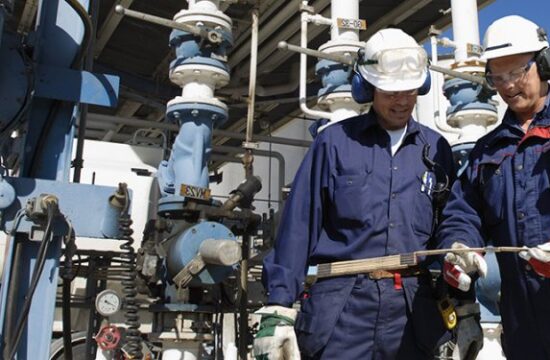Oil and Gas Courses
Oil and gas courses can provide the perfect way to gain experience and qualifications needed to succeed in the industry. With increasing demand for skilled manpower, the number of oil and gas jobs will continue to grow. As well, the number of courses that are available in this field will increase to meet the demand. If you are interested in obtaining training to be one of the many individuals who are in need of oil and gas courses, the information below will help you find the right program for you.
Offshore Drilling Specialist, Petroleum Technologist, Environmental Health and Safety Manager, Petroleum Engineer, and petroleum technologist are some of the commonly sought-after industry positions. Training for all of these positions is available virtually online. The information below will give you an overview of how to search for programs in this field. You will need to decide which of the three main types of oil and gas courses will best meet your needs. These classes can be found at colleges, technical schools, universities, or online businesses.
Online courses are available for anyone interested in oil and gas business training. These courses can be taken by full-time students or part time. Most online courses for these professionals are flexible and can be completed on your own schedule. However, for those looking for more in depth training, traditional college classes may be the best option for you. Some of the classes offered at colleges or technical schools can include lectures, laboratory activities, internships, presentations, demonstrations, hands-on computer applications, and other opportunities to learn new technologies.
In addition to taking courses online, you can also choose to take a related business course. The petroleum technology course provides you with the knowledge you need to perform work-related tasks related to the exploration, development, and production of petroleum products. This course also provides information regarding the regulatory requirements related to your line of work. Many employers now require that graduates of oil and gas management take one of these related courses because it helps them better understand their legal obligations, as well as what daily work is required of them.
One of the most common oil and gas courses is the MBA. An MBA in petroleum engineering is usually a two-year program that requires a total of about nine months of schooling. This MBA covers subjects such as accounting principles, business communication, financial management, environmental considerations, human resources, marketing, technical skills, and project management. Your studies can lead to an executive degree, or a specialty within the oil and gas industry. Students often go on to complete master degrees or doctorate degrees in these areas.
The topics covered in the courses include petroleum engineering fundamentals, oil and gas industry safety, geology and drilling techniques, project management, economics of drilling projects, and environmental considerations, among others. Some of the topics you may find interesting include safety measures for geologists, as well as basic safety, first aid, and CPR. Students learn how to use communication tools in the oil and gas industry. You also get instruction in project management and supervision, as well as training in safety, proper safety equipment, and first aid.











